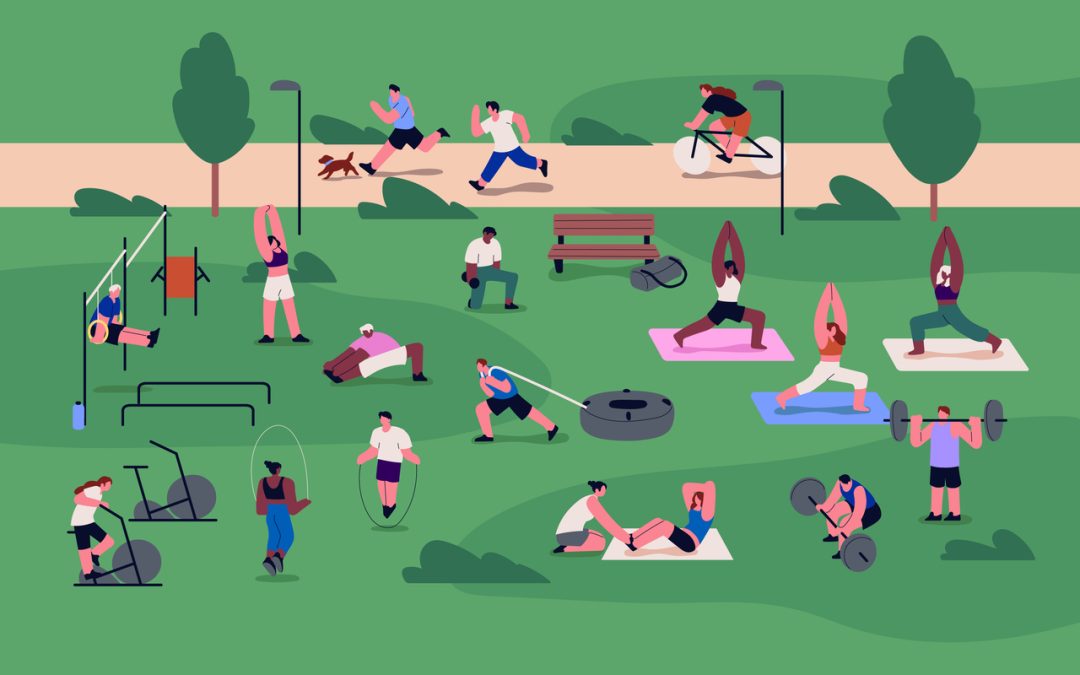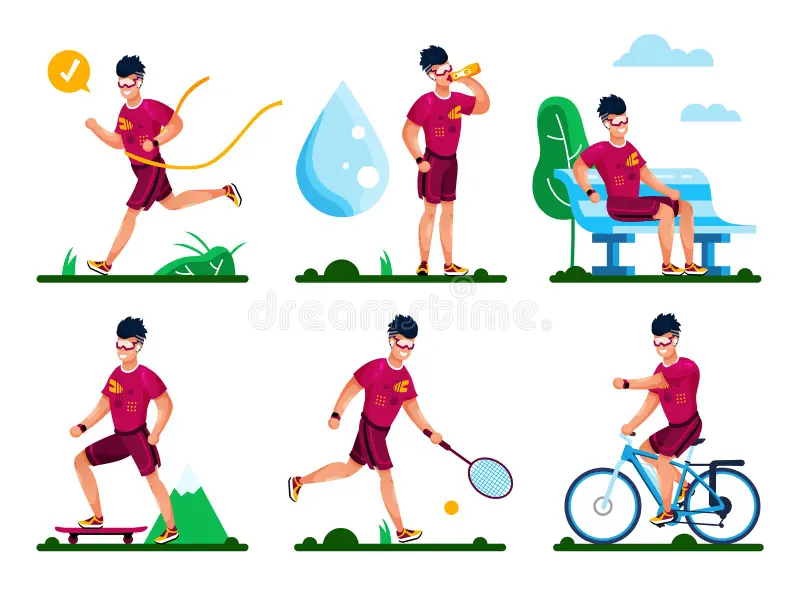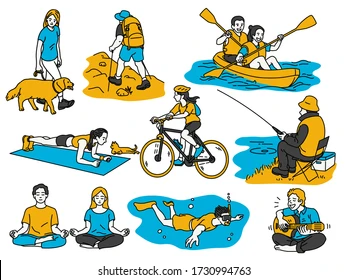Introduction
Recreation is more than just fun—it’s an essential part of a balanced lifestyle. It refers to the activities people engage in during their free time for enjoyment, relaxation, and personal growth. From sports and travel to hobbies and arts, recreation enriches physical health, mental well-being, and social connections. In today’s fast-paced world, recreation is not only a form of leisure but also a key factor in productivity, creativity, and overall happiness.
What is Recreation?
Recreation can be defined as any activity pursued for pleasure, relaxation, or entertainment outside of work and daily responsibilities. Unlike work-related tasks, recreation activities are voluntary and chosen to satisfy personal interests.
Main Types of Recreation
-
Outdoor Recreation: Hiking, camping, fishing, swimming, and exploring nature.
-
Sports and Fitness Recreation: Playing football, basketball, yoga, or gym workouts.
-
Cultural Recreation: Visiting museums, watching films, attending concerts, or learning traditional art.
-
Creative Recreation: Painting, music, photography, cooking, or writing.
-
Social Recreation: Parties, community gatherings, traveling with friends, or volunteering.
-
Digital Recreation: Video games, online learning, streaming shows, and virtual reality experiences.
Historical Background of Recreation
Recreation has existed since ancient times.
-
Ancient Civilizations: Greeks enjoyed theater, music, and Olympic games, while Romans spent time in baths, arenas, and festivals.
-
Middle Ages: Festivals, hunting, and music were popular forms of recreation.
-
Industrial Revolution: With shorter work hours, leisure activities such as sports clubs and public parks became more accessible.
-
Modern Times: Recreation has expanded to include both physical and digital activities, offering unlimited choices for every lifestyle.
 Benefits of Recreation
Benefits of Recreation
1. Physical Health
-
Improves cardiovascular fitness and muscular strength.
-
Reduces risks of obesity, diabetes, and heart disease.
-
Encourages an active lifestyle and healthy habits.
2. Mental Well-Being
-
Reduces stress, anxiety, and depression.
-
Boosts mood through dopamine release during enjoyable activities.
-
Enhances concentration, memory, and creativity.
3. Social Benefits
-
Strengthens family and community bonds.
-
Improves teamwork and communication skills.
-
Encourages cultural exchange through group activities and festivals.
4. Economic Benefits
-
Recreation and tourism generate jobs and income.
-
Cities with recreational spaces attract more visitors.
-
Outdoor and sports industries contribute significantly to the economy.
 Recreation in the Digital Age
Recreation in the Digital Age
Technology has transformed how people experience recreation.
-
Online Gaming and eSports: Competitive gaming has become a billion-dollar industry.
-
Streaming and Virtual Events: Platforms like Netflix, YouTube, and live concerts bring recreation into homes.
-
Social Media Challenges: Interactive online trends provide new ways to have fun and connect globally.
-
Virtual Reality (VR): Simulated worlds allow people to travel, play sports, and socialize without leaving home.
The Role of Recreation in Education and Work
-
In Education: Schools encourage recreation through sports, arts, and extracurricular activities to promote learning and creativity.
-
In Workplaces: Companies invest in wellness programs, recreational breaks, and team-building activities to improve productivity and reduce burnout.
Challenges to Recreation
-
Time Constraints: Busy lifestyles limit opportunities for leisure.
-
Economic Barriers: Expensive recreational activities are not accessible to everyone.
-
Digital Addiction: Overuse of screens can reduce physical outdoor activities.
-
Environmental Concerns: Overcrowding in natural areas may harm ecosystems.
Promoting Recreation for a Balanced Life
-
Community Development: Cities should build parks, sports facilities, and cultural centers.
-
Affordable Access: Governments can support low-cost recreational opportunities.
-
Encouraging Outdoor Play: Families should spend more time in nature.
-
Balanced Screen Time: Combining digital recreation with physical activities ensures healthier lifestyles.
The Future of Recreation
The future of recreation will continue to evolve with technology and social trends.
-
Smart Recreation Spaces: Parks and gyms with AI-driven fitness tools.
-
Sustainable Tourism: Eco-friendly travel will become a priority.
-
Global Events: Sports, music, and online cultural festivals will bring people together.
-
Hybrid Leisure: A mix of physical and digital recreation will shape how future generations enjoy free time.


You must be logged in to post a comment.